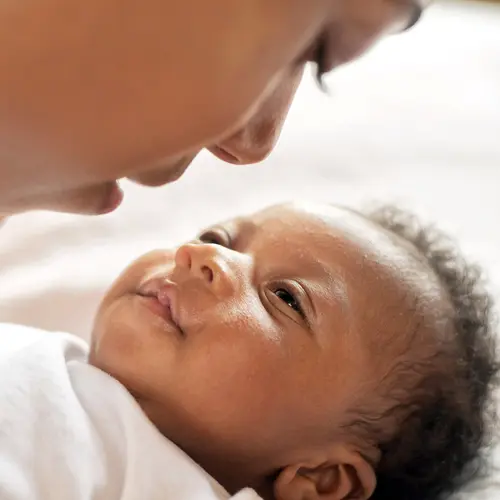Now that your baby is 10 months old, you’ve probably been noticing a lot of big changes. And you may be amazed at how fast your baby is turning into an independent little person who gets around, plays, and communicates like a pro. You also should be getting a sense of your baby’s personality by now -- quiet or outgoing, calm or adventurous. And you no doubt have noticed that your baby already has a few favorite books, stuffed animals, songs, and games.
In this portion of WebMD’s month-by-month guide, you’ll discover what baby milestones you can expect your child to achieve when they are 10 months old.
Tenth Month Baby Milestones: Motor Skills
Your 10-month-old is enjoying the freedom of exploring in many different ways. Babies at this age can crawl, pull from a seated position to standing, squat while holding on or sit back down, and cruise around while holding onto the furniture or your hands. Walking is now just a couple of months away, so you can expect your baby to soon be on the go even more.
At 10 months, your baby’s coordination has improved a lot. Children at this age are pretty adept at picking up small objects in their pincer grasp. They can also spot items easily at this age and quickly get to them. Just make sure you keep anything small enough to pose a choking hazard, such as coins and other small items, out of their reach. If you haven't done so already, baby proofing the house is crucial now with your baby on the move and being able to grasp objects.
They're also figuring out how to fit smaller objects into larger ones, which makes stacking cups a lot of fun. And 10-month-olds have the skill to hold a toy in one hand while using the other hand for a different task.
Tenth Month Baby Milestones: Sleep
By 10 months, your baby may be down to a single one-hour nap during the day. but there's nothing to worry about if they are still taking 2 naps. If you’re going to skip a nap, it’s better to skip the morning one. An after-lunch nap will help baby stay awake through the afternoon and avoid pre-bedtime crankiness. Your baby should make up for the lost nap by sleeping for an extra hour or two at night, and sleeping through the night.
Tenth Month Baby Milestones: Eating
You can continue to expand your baby’s palate by offering a wide variety of fruits, vegetables, grains, yogurt, and meats. Be sure to avoid choking hazards such as popcorn, raisins, nuts, hard candy, whole grapes, and hot dogs cut into circles.
Now that a few teeth have come in, introduce thicker consistencies and more table foods cut up into small pieces that you serve as finger foods.
Letting them feed themselves these finger foods allows them to practice their pincer grasp, and it helps them practice their coordination skills by picking the food up and putting it in their mouth.
If you haven’t done so already, try giving your baby a spoon and letting them feed themselves. Pick a utensil with a large, easy-to-grasp handle. The first few times your baby feeds themselves will be messy, but every mess can be cleaned, and eating independently is an important skill to learn. You may want to put a mat under their chair for easier clean-up and to protect your floors.
Some parents make their baby food by boiling fruits, vegetables, and meats and then grinding them or blending them for baby to eat.
Other parents prefer to buy organic baby foods instead of the traditional brands. These foods are more expensive, but are they worth the extra cost? There is some evidence that organic baby foods contain fewer pesticide residues than conventional baby foods. But they don’t have any more vitamins or other nutrients than the regular brands. Ultimately, the decision of whether to go organic depends on your own preference.
Tenth Month Baby Milestones: Communication
Babies at this age are mimics, and you may notice your baby copying just about everything you do, from brushing your hair to picking up the phone. Your baby will listen to the sound of your words and will watch you carefully to gauge your reactions to situations. If you cry at a sad movie, for example, you may see your baby’s face crumple up, too.
Ten-month-olds can understand and follow simple, one-step commands, such as “wave bye-bye” or "clap hands." They also can attach meanings to certain words. When you say “car” or “dog,” your baby may point at the object, and they should respond to the sound of their own name.
Tips for Your Baby’s Tenth Month:
- Even though your baby isn’t talking yet, engage them in real conversations. For instance, respond to their babbles with “Really?” or “That’s so interesting!” Or carry on a conversation using a stuffed animal or puppet. You’ll encourage your baby to keep talking and learning new words.
- Turn on the tunes. Any type of music will work, whether it’s pop, country, or show tunes. Your baby will love bopping and bouncing along to the rhythm.
- Hide toys and help your little one look for them to practice object permanence-the idea that things continue to exist, even when they can’t see them.
- At 10 months, your baby should be babbling, making eye contact, and responding to your words and actions. If you are worried that your baby isn’t communicating appropriately, call your pediatrician for an evaluation.


